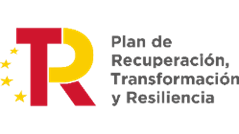Our group has previously shown that SARS-CoV-2 specific memory T lymphocytes may be identified and isolated from the peripheral blood of COVID-19 convalescent donors recovered from this disease (Ferreras et al, 2021; Guerreiro et al 2021) and that intravenous infusion of increasing doses in moderate to severe COVID-19 patients is safe, feasible and well-tolerated in a dose-escalation until 1 million cells/kg of weight (Clinical Trial NCT 04578210, Pérez-Martínez et al, 2021 submitted). Currently, a phase 2, randomized controlled trial is been conducted for a larger population based on allogeneic administration of SARS-CoV-2 specific T memory lymphocytes in mild to severe COVID-19 patients (n=84 patients/arm: SoC and SoC + Tmem SARS-CoV-2). We have also shown that compassionate use of adipose-derived mesenchymal stromal cells (MSC) administered to critically ill Intensive Care Unit patients intubated and ventilated mechanically may reduce mortality form 85% to 15%, reduce inflammatory markers and rescue CD4+, CD8+ and B-lymphocytes (Sanchez Guijo et al, 2020). In this project we focused on COVID-19 patients who resume earlier valid criteria for High Mortality Risk (Fatal or Critical) as could be identified when admitted to the hospital. A Combinatorial Cell Therapy is proposed for these High Mortality Risk Patients (Antiviral: Tmem lymphocytes for stage I-II (WHO Grades 3-5) plus Antiinflammatory-Immunomdulatory-Regenerative Cell Therapy: Mesenchymal Stromal Cells for critically ill patients Stages II-III (WHO Grades 4-6).
Número del expediente: ICI21/00016
Breve descripción del objetivo o finalidad de la ayuda:
Investigador principal: Bernat Soria Escoms
Entidad financiadora: Instituto de Salud Carlos III
Convocatoria: 2021 PROYECTOS DE INVESTIGACIÓN CLÍNICA INDEPENDIENTE 2021
Desde: 01/01/2022
Hasta: 31/12/2025
Ayuda concedida: 459.800 €





